
By Q Radio News
A 17-year-old girl from north Belfast who suffered from a burst brain tumour is trying to raise awareness after having her symptoms misdiagnosed for years.
Amber Hanna has had migraines since she was very young, but back in February this year she suffered a serious haemorrhage and was rushed to hospital.
Now the teen is sharing her story with the help of the charity Brain Tumour Research, to raise awareness of the disease she never knew she had.
Amber recalled: “My mum took me to the GP over and over again to try to get me referred for a scan but we were always told it was just migraines, caused by stress. I actually felt as if my migraines were causing me to be stressed and not the other way around.
“I would get a throbbing pain in my head, blurred vision and ringing in my ears. It was particularly bad in the morning, so waking up for school was really hard. My attendance was so poor and I was put on a reduced timetable, so I didn’t have to start until later in the day.”
Amber, who lives with her mum Daniella, 26-year-old brother Sebastian and 23-year-old sister Charlotte, became so ill one morning in February 2020, her mum called the doctor, who sent an ambulance.
She continued: “I felt worse than ever and I couldn’t stop vomiting. The paramedics came and took me to Royal Victoria Hospital (RVH). They scanned me and the first thing they discovered was a haemorrhage in my brain. Later they found a tumour, which had burst, causing my sudden and extreme symptoms.”
Amber’s was suffering from a rare choroid plexus tumour.
The most common symptom of this tumour-type is headaches caused by hydrocephalus, the build-up of fluid in the brain.
The teenager was admitted to the RVH and operated on the same day and had part of her skull removed to fit a drain to reduce the build-up of fluid.
Further surgery to inject glue into the tumour was required to make it easier to remove two days later on 24 February.
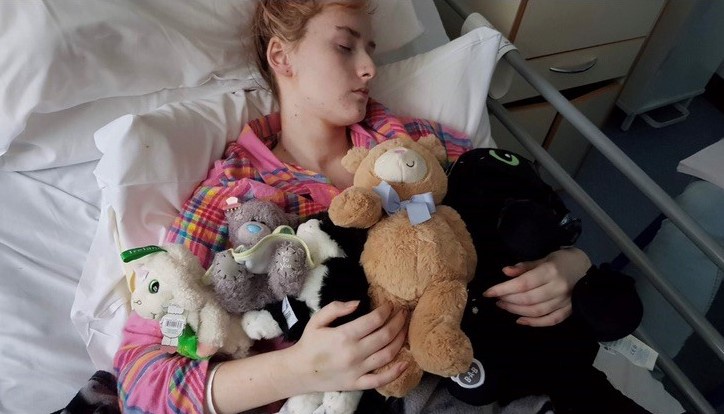
Amber said: “My amazing surgeon, Mr Mano Shanmuganathan, works at The RVH but lives in England. I’m told he cancelled his flight home that day, in order to stay and operate on me, as it was so urgent. I am so very grateful to him for that.”
Following her operation, Amber has developed epilepsy.
Other after-effects of surgery included a completely numb left arm and weakness in the left side of her body which she is still recovering from.
“There is a bit of the tumour left, which they weren’t able to remove but the good news is that it is a low-grade (grade 1) tumour and they tend not to grow back,'' Amber said.
“I haven’t gone back to school yet. I managed to sit some of my GCSE exams in the summer but I didn’t get the grades I should have got. I would love to go to further education college to study history and politics. Originally, I wanted to go into medicine but I get freaked out by needles and blood, even though I’ve had to become less squeamish after everything I’ve been through.
“My mental health is so much better than it was before my diagnosis and my physical health continues to improve. The positive side of having emergency surgery was that I didn’t have time to get anxious about the operation – it just happened! Above all, my family and I are just so relieved they found it and that it was treatable and I no longer suffer from the debilitating migraines I used to endure.”
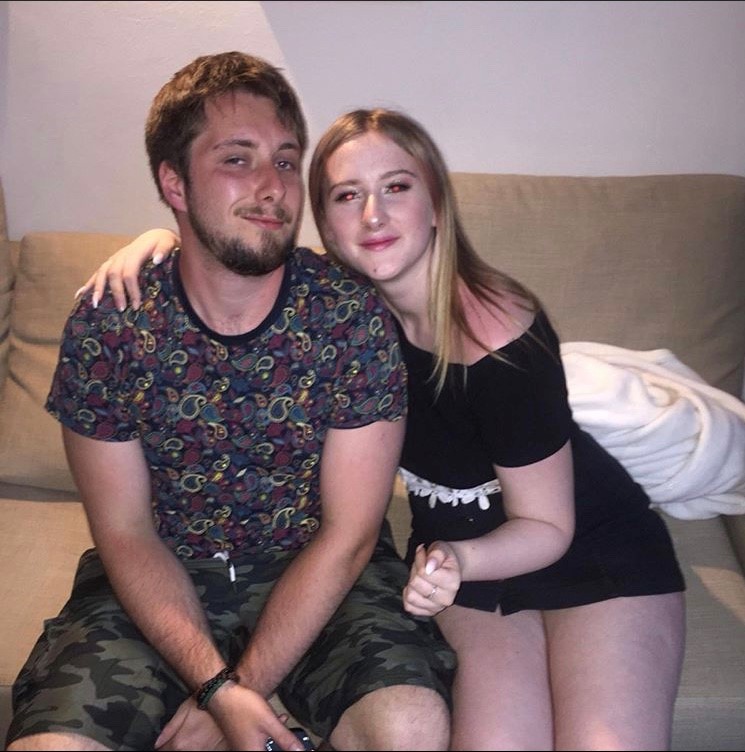
(Amber with her brother)
Amber is now is campaigning with the charity and is urging people to make a difference by signing a petition to increase the national investment into brain tumour research to £35 million a year, which would bring parity of funding with other cancers such as leukaemia, breast and prostate.
''I want to use my experience as a force for good. I am so lucky that my tumour was treatable and that I have a bright future ahead of me. Sadly, that isn’t the case for so many other brain tumour patients and that needs to change. I would urge everyone to sign the petition, to campaign for increased funding and ultimately, help find a cure for this awful disease,'' she said.
According to Brain Tumour Research more children and adults under the age of 40 die of a brain tumour than any other cancer.
The five-year survival rate for breast and prostate is over 70%, leukaemia over 40%, yet for brain tumours it is just 12%.
Since national cancer spend records began in 2002, £680 million has been invested in breast cancer, yet only £96 million in brain tumours – a difference of £35 million a year over 17 years.
Joe Woollcott, community development manager at Brain Tumour Research, said: “We were so sorry to learn about Amber’s brain tumour diagnosis and the ordeal she has been through.
''We are really pleased her surgery went well and wish her all the best for her ongoing recovery. We thank her for sharing her story to help raise awareness of this terrible disease and for her support of our vitally important petition.”


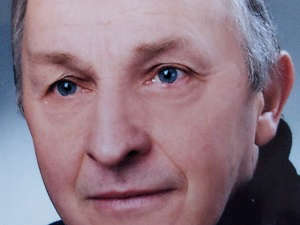 Detectives investigating pensioner murder charge second man
Detectives investigating pensioner murder charge second man
 Detectives investigating journalist murder in Co Armagh make arrest in England
Detectives investigating journalist murder in Co Armagh make arrest in England
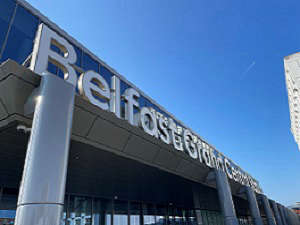 Kimmins ‘stands firm’ following row over station Irish language signs decision
Kimmins ‘stands firm’ following row over station Irish language signs decision
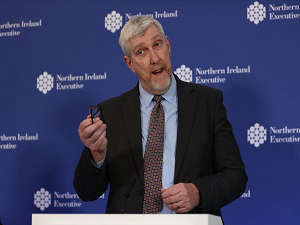 Executive agrees budget with funding to cut waiting lists and boost childcare
Executive agrees budget with funding to cut waiting lists and boost childcare